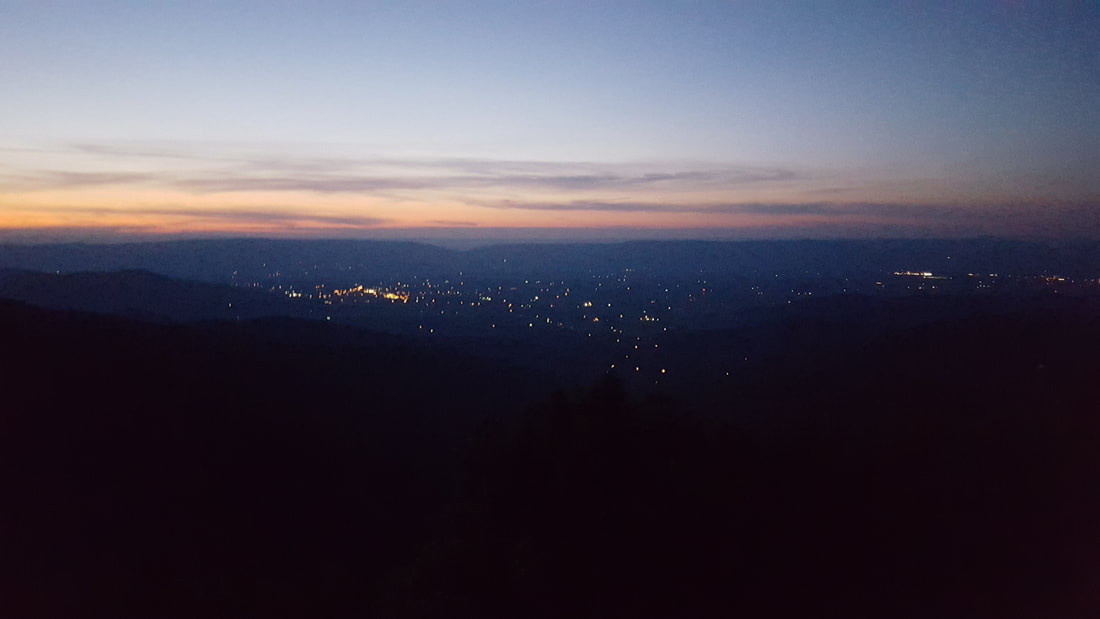Kim O'Connell
|
In the city, the urban glow makes for a kind of endless dusk. The night in Shenandoah is completely different. One night while I'm staying there, I walk to an amphitheater about a half-mile from my room to hear a park ranger talk about animal calls. During the day, this walk is negligible, a leg-stretcher. Nightfall changes everything. Without streetlamps, I am reminded of what true darkness is. I switch on my flashlight.
The funny thing about flashlights is how they pull your focus to the tube of light ahead of you and nothing else, so you ironically see less. With my light on, I feel intrusive and conspicuous, seen rather than seeing. I decide to turn off the flashlight for the walk back to my room. I let the darkness envelop me, covering my body in a way that feels charged, almost erotic. After a while my eyes adjust and I see shadows cast by the gibbous moon. The stars look like sugar spilled across my walnut dining table back home, grain piling on grain. All my other senses are heightened too. I hear the call of a coyote in the distance and the breeze whirling through the high canopy of trees--trees I can’t really see, but whose immensity I sense all around me. The ground is hard beneath me, holding me up. “We don’t sing of the night anymore,” the environmental writer Thomas Becknell once wrote. I find that I want to sing. Comments are closed.
|
Kim A. O'ConnellThoughts on writing, travel, people, and places. Categories
All
Archives
January 2019
|

 RSS Feed
RSS Feed